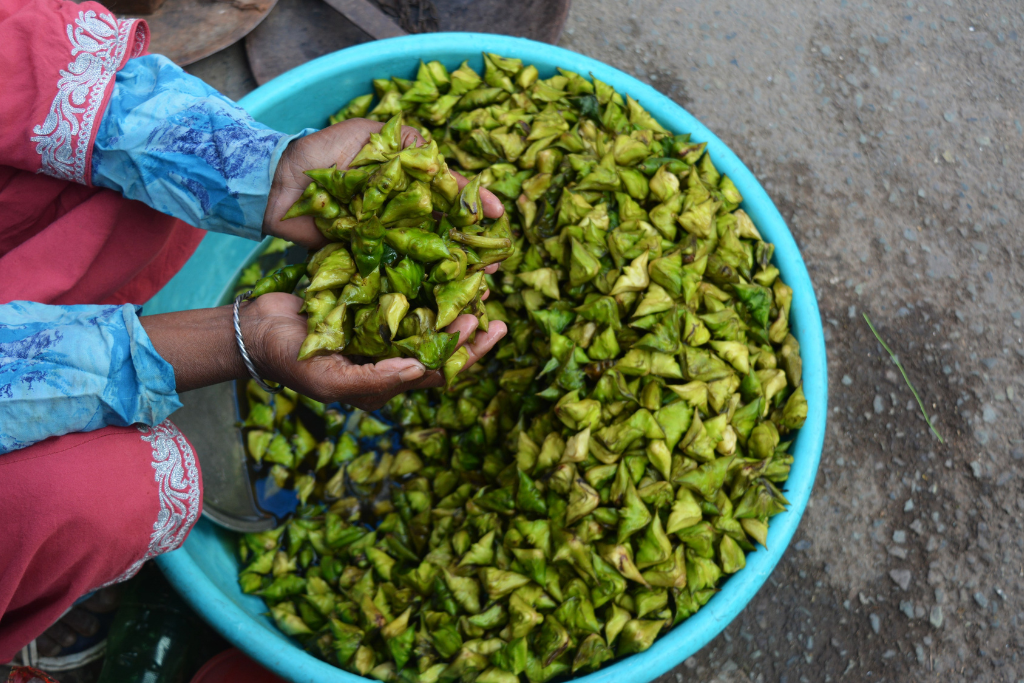
Kashmiri women navigate success in water chestnuts
Locally known as Singhara, water chestnuts grow naturally on the margins of Wular - one of the largest freshwater lakes in Asia. From harvesting the produce to selling, it is an industry run primarily by women.
Every year, from mid-July to November, the water chestnuts are extracted in abundance from the marshy areas along the famous Wular in North Kashmir.
The thriving industry is the major source of income for many families in Bandipora and Baramulla districts in North Kashmir. Almost in every village women are the driving force behind this thriving industry of North Kashmir.
The skills and knowledge of collecting, cleaning and preparing chestnuts are passed on from one generation of women to the next. More than 80% of women are involved in this industry, setting a towering example of women’s empowerment.
Also Read: Shrinking Wular Lake shrivels water chestnut harvests in Kashmir
Water chestnuts are sold in the market in different ways. It can be either sold as a vegetable or as flour. Apart from their role in harvesting, women also stay at the forefront of selling the chestnuts in local markets.
The process of taking out chestnuts from marshy lands is demanding, time-requiring and laborious. Sometimes, it causes calluses and cuts on hands and feet. For extracting chestnuts from marshy land women have to go ankle-deep in the mud.
Also Read: Fishing and fresh springs: Kashmiri festival unites villages
The edible part of the water chestnut, known as corn, lies under the thick green outer layer. As flour, its outer layer is peeled off and the white corn is dried and made into flour. A good proportion of the produce is sold as chestnut flour which fetches a high price in the market.
Video: Watermelon brings prosperity to grape village in Kashmir
Besides women, teenage girls too can be seen extracting chestnuts from Wular Lake during the season because they find the harvesting season an opportunity to have social interactions and gain some measure of financial autonomy.
Also Read: How Kud has become Kashmir’s sweet-making powerhouse
A kilogram of wet Chestnut is sold at Rs 60. However, dried chestnuts and their flour are more expensive.
Also Read: Copperware carves way for Kashmir women’s empowerment
A great source of potassium, water chestnut is a seed of aquatic weed. It is gluten-free and also helps manage diabetes.
Also Read: Kashmir’s purple revolution with lavender cultivation
The lead image at the top shows a lady selling waterchestnuts in the market (Photo by
Farhat Jahan is a Kashmir-based journalist. She mostly writes on the environment, culture and art.
Aamir Ali Bhat journalist and independent researcher based in Kashmir.








